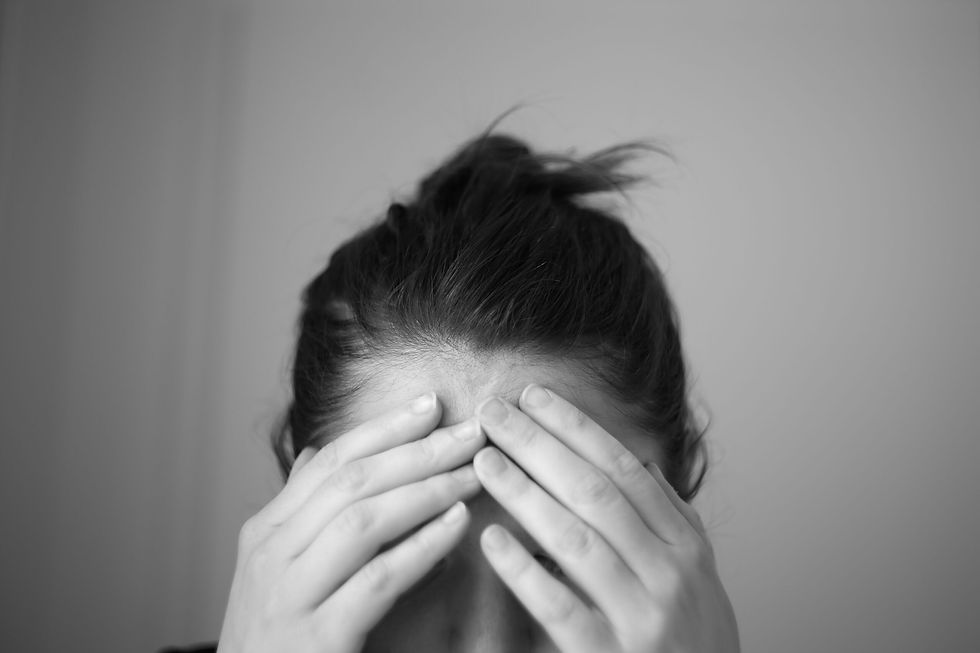Rejection Sensitivity
- mikebessey
- May 6, 2025
- 3 min read
Updated: Aug 5, 2025

What is rejection sensitivity?
Rejection sensitivity is an intense emotional response to rejection, criticism or failure. The resulting emotions can be things like anxiety, shame, anger or humiliation.
It can be from direct rejection like not being invited to a party. Or perceived rejection like a friend taking longer than usual to reply to a message.
It can also cause physical symptoms like sweating, tension, headaches and shaking.
While it is not a core symptom it’s experienced by most ADHDers and can cause a lot of distress.
Why are people in general sensitive to rejection?
There is a theory that if you look back at our ancestral history being part of a tribe was essential to survival. Being outcast from our group could have been life threatening, so it made sense our brains have mechanisms to make sure this doesn’t happen.
While that made sense when there was a risk or running into sabre tooth tigers and we had to find our own food it makes less sense in the modern world. Many cultures are very individualistic now, and it’s possible (while not ideal) to live a very independent and safe life. However our brains haven’t evolved as quickly as our environment.
Why do ADHDers experience it more than most?
There are two main factors that play into this:
Past experiences of rejection:
ADHDers are much more likely to have experienced higher levels of rejection through their lives such as being bullied or excluded. Our brains are essentially prediction machines, so after experiencing a lot of rejection we are more likely to expect it.
The expectation or experience of being rejected can activate parts of the brain which are associated with physical pain which is why it can be so unpleasant. While it doesn’t feel helpful it’s thought these emotions are there to try to protect us from further pain.
Challenges with emotional regulation:
In addition to this ADHDers very commonly have difficulties around emotional regulation. This can often mean that we are more reactive to things that cause emotional stress and experience emotions more intensely while finding it more challenging to let go of those emotions.
This means we feel the sting over rejection very quickly and it can take a long time to recover from that. Even remembering experiences of rejection can trigger the feelings again.
What kind of things can trigger feelings of rejection?
Unclear social cues - this could be things like a friend not answering the phone ,your boss at work wanting to talk to you or getting no ‘likes’ on a social media post. ADHDers tend to have a strong negativity bias which means we are more likely to expect the worst in these situations.
Failures or mistakes - getting negative feedback or making mistakes can easily trigger feelings of rejection. Perfectionism is a common ADHD trait so it could even come from feeling like we haven’t performed as well as we could.
How can ADHDers manage these feelings of rejection?
When it comes to unclear social cues it can help to make note of the times when you expected something bad to happen and it didn’t. For examples time when a friend didn’t text you back and it turned out they fell asleep and it wasn’t because you did something to upset them.
You can ask yourself questions like: What is the evidence for/against the perceived rejection? What’s the best/most likely outcome? If a friend came to me for advice about this situation what would you tell them?
Working on emotional regulation techniques can really help calm things down when we feel rejection. This includes things like mindfulness, exercise, journalling and breathing techniques. Learning to be kind to yourself can really help with this too.
Online support groups can be a great place to find help with this. Reading other people’s experiences can help us realise we are definitely not alone in this. And if it feels safe to do so posting our experiences and getting validation from other ADHDers can really help.
Making a list of good interactions with people like if someone gives you positive feedback or gives you a compliment. Because of our bias to remember the negative it can be really helpful to get into a habit of revisiting the list to remind ourselves of the times things have gone well socially.
Therapy and coaching can also help with these feelings. If you’re interested in a free call with me to discuss how I can help you manage feelings of rejection through coaching you can book a time with me on the link below:




Comments